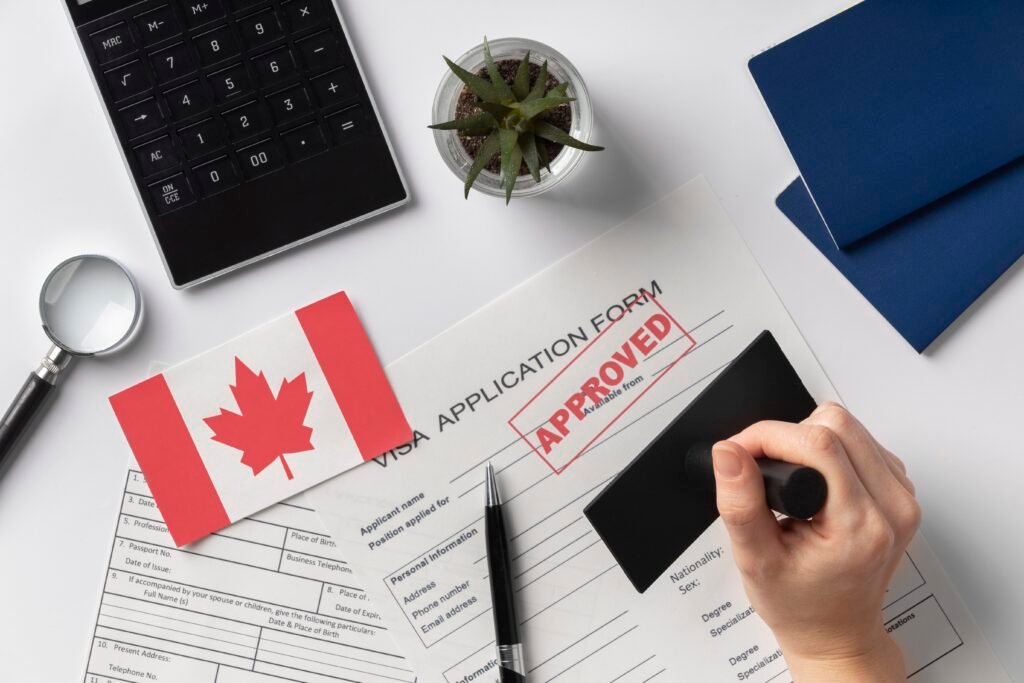New US Visa Changes: What Students, Workers, and Tourists Need to Know
In 2025, major US visa rule changes have sent ripples across the international community. If you’re planning to study, work, or travel in the United States, staying informed is more important than ever.
Under the Trump administration’s return to office, immigration and visa policies have been revised significantly. From revoked student visas to AI-based visa monitoring, the new rules are strict and in full effect.
In this blog, we break down the most critical US Visa Changes 2025 for international applicants and share tips to navigate them successfully.
1. Over 300 Student Visas Revoked for Minor Offenses
- International students, including those from top universities like Harvard and Stanford, are facing unexpected visa revocations.
- Minor infractions like traffic violations, late library fees, or political tweets are being flagged.
- Students are urged to maintain perfect compliance and avoid risky behaviors, even off-campus.
Learn more from USCIS Policy Manual and Education USA.
What You Can Do
- Keep your documents updated.
- Avoid any form of legal or disciplinary action.
- Stay informed through your university’s international office.
2. F-1 Visa Rejections Spike for Indian Students
The F-1 visa rejection rate for Indian students reached 41% in 2024 — and continues to rise in 2025.
Reasons for Rejection
- Insufficient financial documents.
- Vague study plans or weak university choice.
- Inconsistent answers during visa interviews.
How to Avoid F-1 Visa Rejection
- Choose accredited institutions listed on SEVP.
- Prepare strong financial and academic documents.
- Practice interview questions with a visa consultant.
Check F-1 visa requirements at US Travel Docs.
3. Optional Practical Training (OPT) May Be Eliminated
A proposal to eliminate the OPT program is gaining momentum. This move affects thousands of students who rely on OPT for gaining work experience in the U.S.
What Happens if OPT is Canceled?
- Students will need to apply directly for H-1B visas after graduation.
- The competition for H-1B slots will intensify.
Tips for Students
- Start looking for job offers during your first semester.
- Focus on STEM degrees with H-1B extensions.
- Consult your DSO (Designated School Official) for alternatives.
4. Travel Ban for South Sudanese Nationals
In early 2025, the U.S. issued a full travel ban on South Sudan nationals due to political conflict and repatriation issues.
Who Is Affected?
- Even those with Temporary Protected Status (TPS) or valid student/work visas were impacted.
Refer to official updates via the Department of State and USCIS TPS Page.
5. H-1B Visa Holders Advised Not to Leave the U.S.
Due to policy changes and delays, tech companies like Google, Amazon, and Meta are advising H-1B workers not to travel internationally in 2025.
Why?
- Risk of getting stuck abroad due to changing re-entry rules.
- Visa revalidation delays and increased scrutiny at ports of entry.
What You Can Do
- Avoid unnecessary travel.
- Carry job confirmation letters and payroll stubs if you must leave.
- Stay updated with CBP travel policies.
6. USCIS Ombudsman Office Shut Down
The CIS Ombudsman, which helped individuals resolve immigration issues, has been dissolved.
Impact
- No neutral third-party to appeal complicated visa issues.
- Applicants must rely solely on formal channels and legal help.
More info at USCIS Help Center.
7. AI-Based Visa Monitoring for Student Protestors
The U.S. has begun using AI to monitor online activity, especially political speech by international students.
Key Points
- Student visas are being revoked based on social media content.
- Anti-Semitic or anti-government posts flagged for review.
Affected students can seek legal guidance at ACLU or consult with immigration lawyers.
8. H-2B Seasonal Work Visas Already Maxed Out
The H-2B visa cap for 2025 was reached months earlier than usual.
Industries Affected
- Hospitality
- Seafood Processing
- Landscaping
Tips for New US Visa Changes
- Employers must apply early and file accurate job certifications with DOL ETA.
9. New Gender Identity Policy Complicates Applications
The USCIS now recognizes only male and female sex markers. This affects LGBTQ+ visa applicants, especially trans and non-binary individuals.
Recommendations
- Double-check gender marker consistency across documents.
- Consult advocacy organizations like Immigration Equality.
10. J-1 Exchange Visa Holders Face Strict Enforcement
Even minor administrative errors are now causing J-1 visa holders to be deported or barred from re-entry.
Real Example
- A Harvard scholar was sent back for not declaring frog embryos used in research.
To Avoid Issues
- Keep detailed records of all research activities.
- Maintain clear communication with your program sponsor.
Visit the official J-1 Visa Exchange Program page for compliance guidelines.
FAQs About New US Visa Changes
Q1. Are the 2025 visa changes permanent?
Some are executive orders and can be reversed by future administrations, but many changes (like visa revocations) are already active and enforced.
Q2. Can OPT students switch to H-1B directly in 2025?
Yes, but competition is intense. Apply early and work with a reliable sponsor.
Q3. Is it safe to travel to the U.S. in 2025 on a tourist visa?
It is, but you must have strong documentation and avoid political speech online.
Q4. How can students protect themselves from visa rejection?
- Choose reputed universities.
- Maintain clean legal and financial records.
- Avoid controversial posts on social media.
Final Thoughts: Stay Informed, Stay Prepared
The US Visa Changes 2025 mark one of the most volatile periods for immigration and student mobility. Whether you’re a hopeful F-1 student, H-1B tech worker, or J-1 researcher, navigating this new landscape will require strategic planning, awareness, and legal support.
Regularly visit:
Stay proactive, stay informed—and always have a backup plan.
Read Our Latest Blog About: B1/B2 Visa Rejection Reasons & How to Avoid Refusal: Appeal Letter



